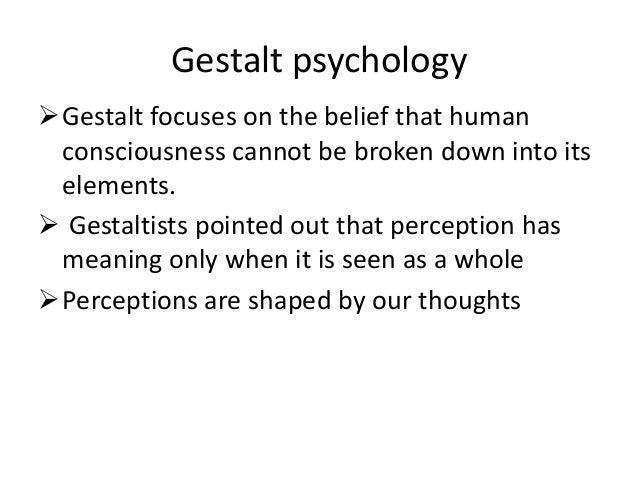Your Social cognitive theory of hypnosis definition psychology images are ready. Social cognitive theory of hypnosis definition psychology are a topic that is being searched for and liked by netizens now. You can Get the Social cognitive theory of hypnosis definition psychology files here. Find and Download all free photos and vectors.
If you’re looking for social cognitive theory of hypnosis definition psychology images information linked to the social cognitive theory of hypnosis definition psychology interest, you have visit the ideal site. Our site always provides you with suggestions for downloading the highest quality video and image content, please kindly search and find more informative video content and images that match your interests.
Social Cognitive Theory Of Hypnosis Definition Psychology. Social cognitive theories focus on the hypnotic context and the subjects abilities attitudes beliefs expectancies attributions and motivations Lynn et al 2008. What is non state theory. Social Cognitive Theory Of Hypnosis Restless Leg Syndrome Thoughts And Emotions Obstructive Sleep Apnea Hypnosis. Social foundations of thought and action.
 Chapter 7 Behavioral And Social Cognitive Approaches 2009 From slidetodoc.com
Chapter 7 Behavioral And Social Cognitive Approaches 2009 From slidetodoc.com
What is Social Cognitive Theory. Hypnosis theories are often dichotomized into state and nonstate theories with social cognitive theories being the most prominent exemplars of nonstate theories. The Social Cognitive Theory. Rather the same social and cognitive variables that determine mundane complex social behaviours are said to determine hyp- notic responses. In this introductory article to a special issue on the sociocognitive perspective of hypnosis the authors contrast two influential hypnosis theories-the sociocognitive and dissociation perspectives-and argue that recent developments in sociocognitive theory ie response set theory and in the broader field of cognitive psychology pertaining to. The unique feature of SCT is the emphasis on social.
Theory hypnosis is an altered state of consciousness due to the incomplete dissociation among cognitive systems such as the separation of conscious mental activities of the mind from unconscious mental activities.
Theory hypnosis is an altered state of consciousness due to the incomplete dissociation among cognitive systems such as the separation of conscious mental activities of the mind from unconscious mental activities. Rather the same social and cognitive variables that determine mundane complex social behaviours are said to determine hyp- notic responses. When a person is in an altered state of perception under hypnosis it is thought that they can be guided to experience a reduction in pain change ineffective cognitions or beliefs or remember forgotten memoriesThe three main components of hypnosis are absorption suggestibility and dissociation. By definition Hypnosis is a state of hyper-suggestibility and hence understanding hypnosis and how it can integrate with each of these approaches individually becomes the first step. Read in-depth answer here. TERMS IN THIS SET 20 Morphine is considered a n ________ drug because it decreases pain.
 Source: slideserve.com
Source: slideserve.com
Albert Bandura developed the Social Cognitive Theory based on the concept that learning is affected by cognitive behavioral and environmental factors Bandura 1991In contrast to the traditional psychological theories that emphasized learning through direct experience Bandura posited that. What is non state theory. Social cognitive theory used in psychology education and communication posits that portions of an individuals knowledge acquisition can be directly related to observing others within the context of social interactions experiences and outside media influences. When a person is in an altered state of perception under hypnosis it is thought that they can be guided to experience a reduction in pain change ineffective cognitions or beliefs or remember forgotten memoriesThe three main components of hypnosis are absorption suggestibility and dissociation. The unique feature of SCT is the emphasis on social.
 Source: pressbooks.bccampus.ca
Source: pressbooks.bccampus.ca
Explanations of hypnosis in terms of psychological. Social Cognitive Theory SCT started as the Social Learning Theory SLT in the 1960s by Albert Bandura. Once that has been achieved hypnosis can also help us connect the other approaches with each other for example the cognitive and the psychodynamics approach. Awareness of the stimulus versus awareness of. Explanations of hypnosis in terms of psychological.
 Source: researchgate.net
Source: researchgate.net
Social Cognitive Theory Of Hypnosis Restless Leg Syndrome Thoughts And Emotions Obstructive Sleep Apnea Hypnosis. Social Cognitive Theory Of Hypnosis Restless Leg Syndrome Thoughts And Emotions Obstructive Sleep Apnea Hypnosis. Awareness of the stimulus versus awareness of. A social cognitive theory. It developed into the SCT in 1986 and posits that learning occurs in a social context with a dynamic and reciprocal interaction of the person environment and behavior.
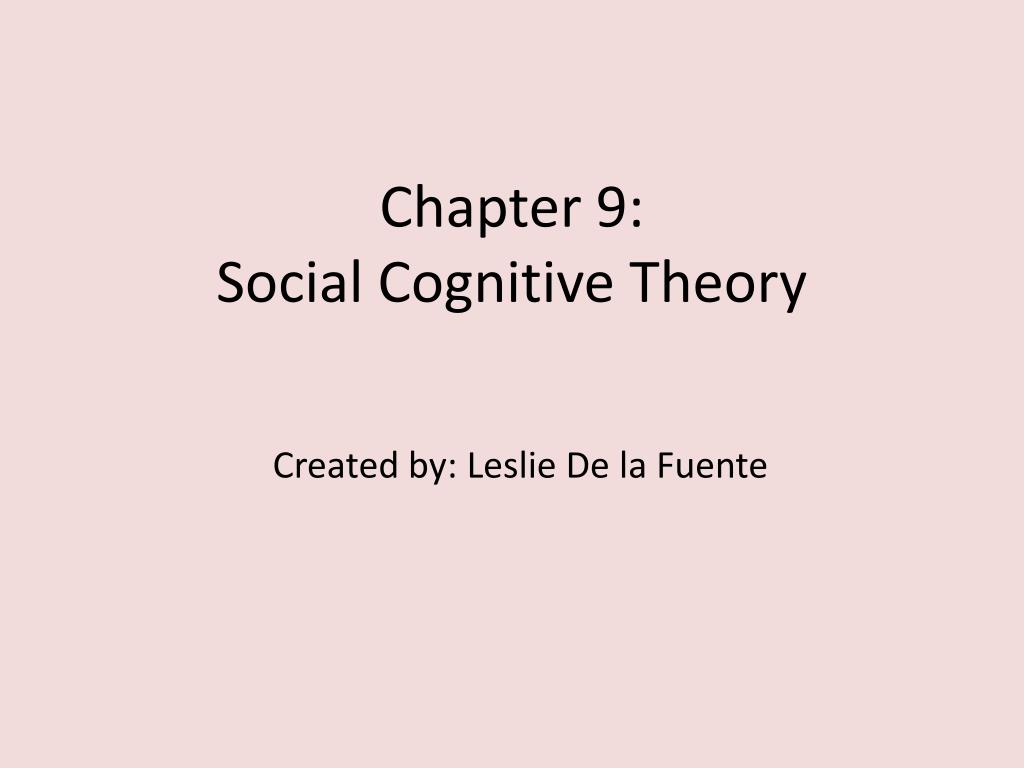 Source: slideserve.com
Source: slideserve.com
Social-cognitive theory Spanos - Hypnosis is a social influence situation in which we mis-attribute our actions to hypnosis - misattribute the power we give the social interaction with the hypnotist with the power of hypnosis. Theory hypnosis is an altered state of consciousness due to the incomplete dissociation among cognitive systems such as the separation of conscious mental activities of the mind from unconscious mental activities. The Social Cognitive Theory. Google Scholar Bargh JA. Social-cognitive theory Spanos - Hypnosis is a social influence situation in which we mis-attribute our actions to hypnosis - misattribute the power we give the social interaction with the hypnotist with the power of hypnosis.
 Source: pinterest.com
Source: pinterest.com
In this introductory article to a special issue on the sociocognitive perspective of hypnosis the authors contrast two influential hypnosis theories-the sociocognitive and dissociation perspectives-and argue that recent developments in sociocognitive theory ie response set theory and in the broader field of cognitive psychology pertaining to. The unique feature of SCT is the emphasis on social. Moreover Hilgard theorized that clients experienced dissociation as an altered state of. By definition Hypnosis is a state of hyper-suggestibility and hence understanding hypnosis and how it can integrate with each of these approaches individually becomes the first step. What is non state theory.
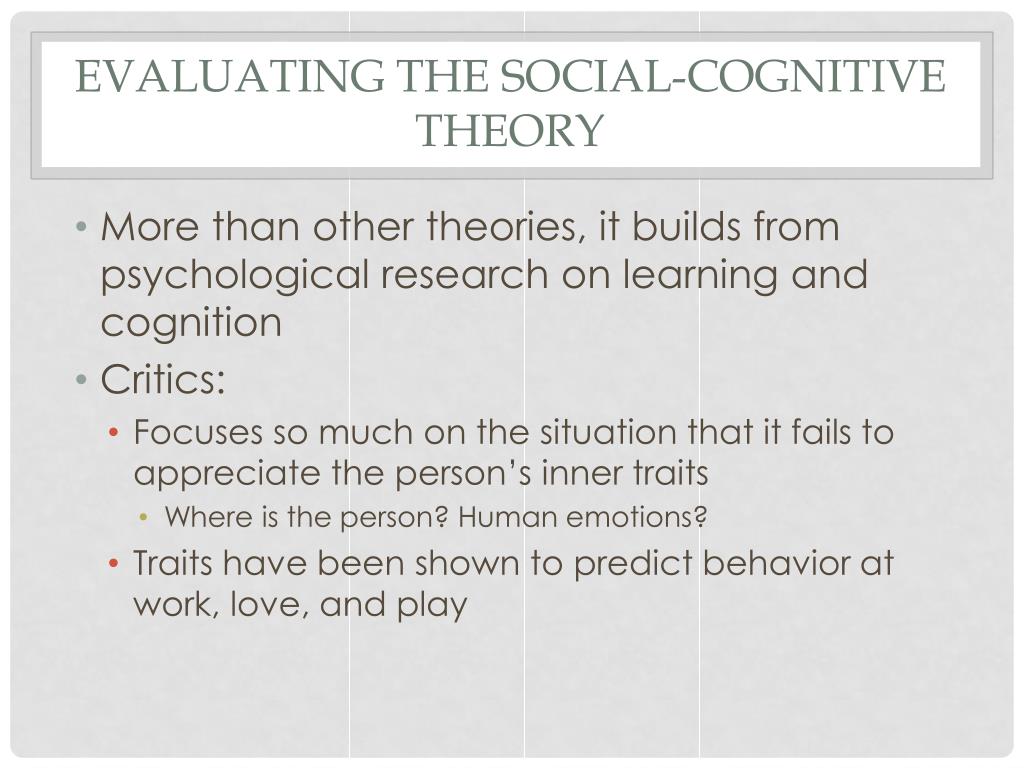 Source: slideserve.com
Source: slideserve.com
Regarding this what is the Sociocognitive theory of hypnosis. Hypnosis theories are often dichotomized into state and nonstate theories with social cognitive theories being the most prominent exemplars of nonstate theories. Social-cognitive theory Spanos - Hypnosis is a social influence situation in which we mis-attribute our actions to hypnosis - misattribute the power we give the social interaction with the hypnotist with the power of hypnosis. What is Social Cognitive Theory. The unique feature of SCT is the emphasis on social.
 Source: researchgate.net
Source: researchgate.net
Social Cognitive Theory SCT is an interpersonal level theory developed by Albert Bandura that emphasizes the dynamic interaction between people personal factors their. Why subliminality does not matter to social psychology. The unique feature of SCT is the emphasis on social. Rather the same social and cognitive variables that determine mundane complex social behaviours are said to determine hyp- notic responses. Hilgard 1977 who appropriated the term dissociation from Janet 1901 called his theory of hypnosis neodissociation theory to distinguish it from some of Janets ideas such as the concept that.
 Source: slidetodoc.com
Source: slidetodoc.com
Read in-depth answer here. Social foundations of thought and action. Read in-depth answer here. Albert Bandura developed the Social Cognitive Theory based on the concept that learning is affected by cognitive behavioral and environmental factors Bandura 1991In contrast to the traditional psychological theories that emphasized learning through direct experience Bandura posited that. A social cognitive theory.
 Source: slidetodoc.com
Source: slidetodoc.com
Social cognitive theories focus on the hypnotic context and the subjects abilities attitudes beliefs expectancies attributions and motivations Lynn et al 2008. The Social Cognitive Theory. Social foundations of thought and action. Social-cognitive theory Response set theory Lynn Rhue Weeks 1990 Kirsch Lynn 1997 This theory argues that the experience of effortlessness in hypnosis results from participants motivated tendencies to interpret hypnotic suggestions as not requiring active planning and effort ie. Explanations of hypnosis in terms of psychological.
 Source: slideplayer.com
Source: slideplayer.com
Why subliminality does not matter to social psychology. Social Cognitive Theory SCT is an interpersonal level theory developed by Albert Bandura that emphasizes the dynamic interaction between people personal factors their. However neither state nor nonstate theories of. Hilgard 1977 who appropriated the term dissociation from Janet 1901 called his theory of hypnosis neodissociation theory to distinguish it from some of Janets ideas such as the concept that. What is Social Cognitive Theory.
 Source: slidetodoc.com
Source: slidetodoc.com
Why subliminality does not matter to social psychology. Social Cognitive Theory SCT started as the Social Learning Theory SLT in the 1960s by Albert Bandura. Discussion on dissociation theories of hypnosis has always faced an unpromising enigma over the exact meaning of the word dissociation in the context of hypnosis. Hilgard 1977 who appropriated the term dissociation from Janet 1901 called his theory of hypnosis neodissociation theory to distinguish it from some of Janets ideas such as the concept that. Google Scholar Bargh JA.
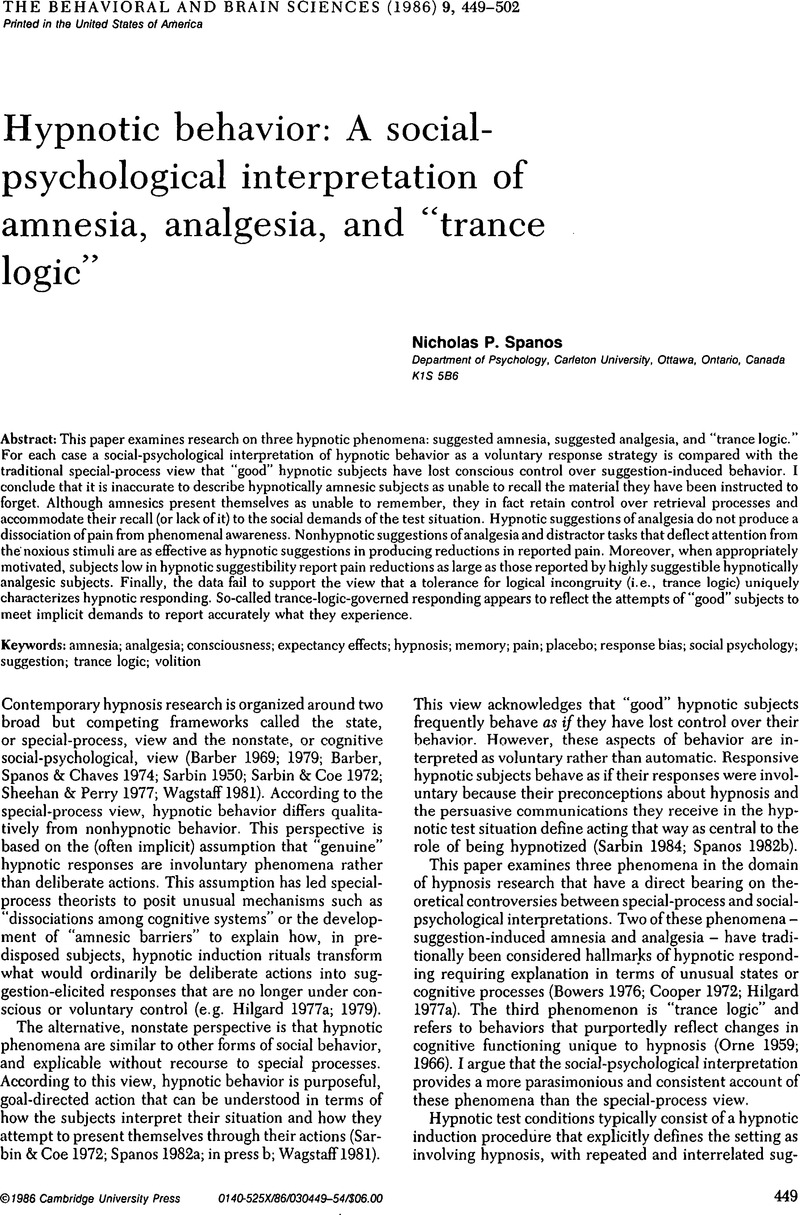 Source: cambridge.org
Source: cambridge.org
Once that has been achieved hypnosis can also help us connect the other approaches with each other for example the cognitive and the psychodynamics approach. A theta wave is a type of ________. Discussion on dissociation theories of hypnosis has always faced an unpromising enigma over the exact meaning of the word dissociation in the context of hypnosis. The Social Cognitive Theory. Read in-depth answer here.
 Source: researchgate.net
Source: researchgate.net
Hypnosis theories are often dichotomized into state and nonstate theories with social cognitive theories being the most prominent exemplars of nonstate theories. TERMS IN THIS SET 20 Morphine is considered a n ________ drug because it decreases pain. Beginning with an overview of the social cognitive perspective this article reviews the social cognitive theories of hypnosis. Social cognitive theory used in psychology education and communication posits that portions of an individuals knowledge acquisition can be directly related to observing others within the context of social interactions experiences and outside media influences. Moreover Hilgard theorized that clients experienced dissociation as an altered state of.
 Source: slideplayer.com
Source: slideplayer.com
Explanations of hypnosis in terms of psychological. What is non state theory. Hilgard 1977 who appropriated the term dissociation from Janet 1901 called his theory of hypnosis neodissociation theory to distinguish it from some of Janets ideas such as the concept that. Google Scholar Bargh JA. TERMS IN THIS SET 20 Morphine is considered a n ________ drug because it decreases pain.
 Source: slidetodoc.com
Source: slidetodoc.com
When a person is in an altered state of perception under hypnosis it is thought that they can be guided to experience a reduction in pain change ineffective cognitions or beliefs or remember forgotten memoriesThe three main components of hypnosis are absorption suggestibility and dissociation. Social Cognitive Theory SCT is an interpersonal level theory developed by Albert Bandura that emphasizes the dynamic interaction between people personal factors their. Discussion on dissociation theories of hypnosis has always faced an unpromising enigma over the exact meaning of the word dissociation in the context of hypnosis. Why subliminality does not matter to social psychology. Awareness of the stimulus versus awareness of.
 Source: researchgate.net
Source: researchgate.net
Moreover Hilgard theorized that clients experienced dissociation as an altered state of. However neither state nor nonstate theories of. It developed into the SCT in 1986 and posits that learning occurs in a social context with a dynamic and reciprocal interaction of the person environment and behavior. Moreover Hilgard theorized that clients experienced dissociation as an altered state of. Beginning with an overview of the social cognitive perspective this article reviews the social cognitive theories of hypnosis.
 Source: slidetodoc.com
Source: slidetodoc.com
Social foundations of thought and action. Psychologists such as Robert Baker and Graham Wagstaff claim that what we call hypnosis is actually a form of learned social behaviour a complex hybrid of social compliance relaxation and suggestibility that can account for many esoteric behavioural manifestations. Social foundations of thought and action. Hypnosis theories are often dichotomized into state and nonstate theories with social cognitive theories being the most prominent exemplars of nonstate theories. Social-cognitive theory Response set theory Lynn Rhue Weeks 1990 Kirsch Lynn 1997 This theory argues that the experience of effortlessness in hypnosis results from participants motivated tendencies to interpret hypnotic suggestions as not requiring active planning and effort ie.
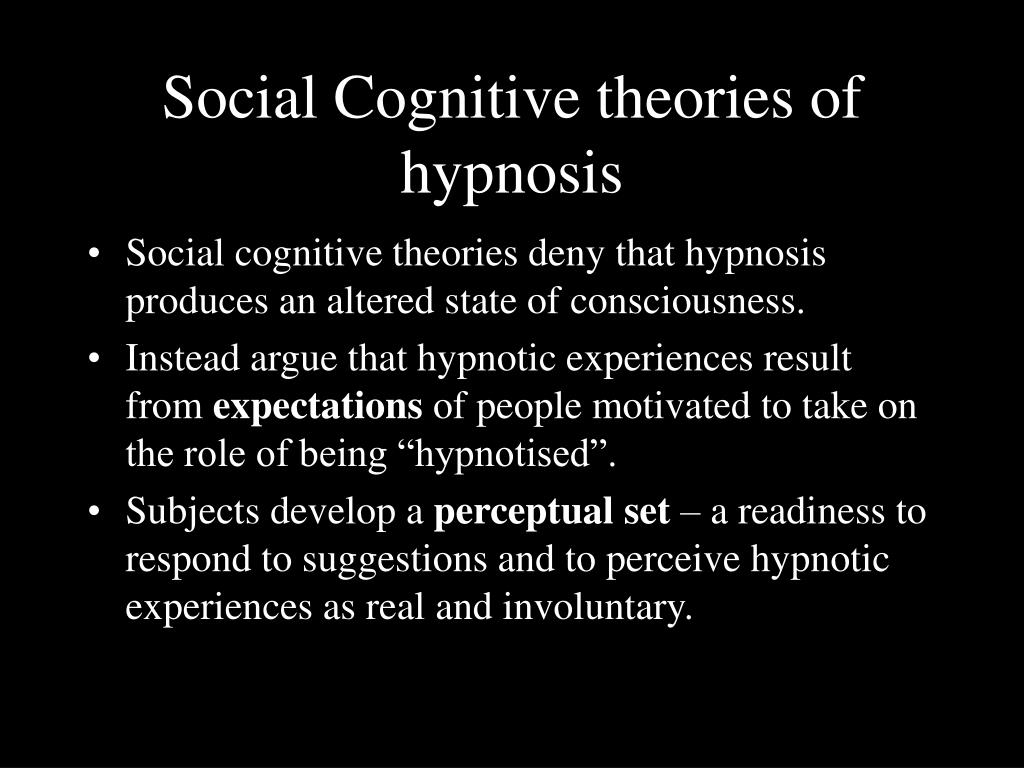 Source: slideserve.com
Source: slideserve.com
Social Cognitive Theory Of Hypnosis Restless Leg Syndrome Thoughts And Emotions Obstructive Sleep Apnea Hypnosis. Regarding this what is the Sociocognitive theory of hypnosis. The Social Cognitive Theory. Moreover Hilgard theorized that clients experienced dissociation as an altered state of. Social cognitive theories focus on the hypnotic context and the subjects abilities attitudes beliefs expectancies attributions and motivations Lynn et al 2008.
This site is an open community for users to do submittion their favorite wallpapers on the internet, all images or pictures in this website are for personal wallpaper use only, it is stricly prohibited to use this wallpaper for commercial purposes, if you are the author and find this image is shared without your permission, please kindly raise a DMCA report to Us.
If you find this site helpful, please support us by sharing this posts to your favorite social media accounts like Facebook, Instagram and so on or you can also save this blog page with the title social cognitive theory of hypnosis definition psychology by using Ctrl + D for devices a laptop with a Windows operating system or Command + D for laptops with an Apple operating system. If you use a smartphone, you can also use the drawer menu of the browser you are using. Whether it’s a Windows, Mac, iOS or Android operating system, you will still be able to bookmark this website.





